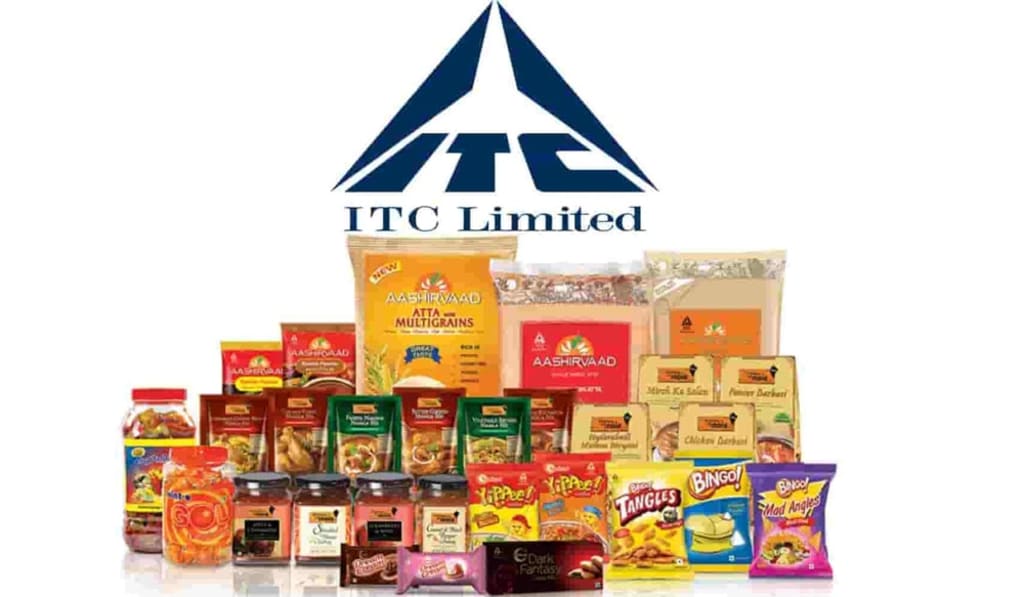ITC Limited: A Diversified Indian Conglomerate's History, Business Model, Finance, CEO, Board of Directors, Advantages and Disadvantages, Business Strategy, and Business Lessons
Introduction ITC Limited is an Indian multinational conglomerate company with its headquarters in Kolkata, West Bengal, India. The company was established in 1910 as the Imperial Tobacco Company of India Limited. Over the years, it has diversified into several businesses, including FMCG, hospitality, paperboards, and packaging, agri-business, and information technology. ITC has a strong presence in the Indian market and is also present in several international markets. In this article, we will discuss the history, business model, finance, CEO, board of directors, advantages, disadvantages, business strategy, and business lessons of ITC.

History
ITC's history can be traced back to 1910 when the Imperial Tobacco Company of India Limited was established. The company's main business was the production and distribution of cigarettes in India. In 1970, the company was renamed I.T.C. Limited, and the acronym stood for Imperial Tobacco Company of India Limited. The company diversified into several businesses, including hotels, paperboards, and packaging, agri-business, and information technology, among others.
Business Model
ITC's business model is based on diversification into several businesses. The company has a presence in several sectors, including FMCG, hospitality, paperboards and packaging, agri-business, and information technology. The company's FMCG business is one of the largest in India and includes products like cigarettes, personal care products, and food products. The hospitality business includes hotels and resorts, while the paperboards and packaging business produces paperboards, packaging, and printing products. The agri-business segment includes agricultural commodities and exports, while the information technology segment offers services like software development, maintenance, and consulting.
Finance
ITC is a financially sound company with a strong balance sheet. As of March 2021, the company had a total revenue of INR 54,896 crores and a net profit of INR 13,890 crores. The company's market capitalization is around INR 2,97,000 crores as of February 2023. The company's debt-to-equity ratio is 0.46, which indicates that the company is not heavily leveraged.
CEO
Sanjiv Puri is the current CEO of ITC Limited. He was appointed as the CEO in February 2017, after the sudden demise of the company's previous CEO, YC Deveshwar. Puri joined ITC in 1986 and has held several positions in the company, including the Chief Operating Officer and Director of FMCG, Paperboards and Packaging, and Agri-Business.
Board of Directors
ITC's Board of Directors comprises 12 members, including the Chairman, Managing Director, CEO, and several independent directors. The Chairman of the company is Sanjiv Puri, while the Managing Director is Nakul Anand. The independent directors include S Sivakumar, Sumant Bhargavan, and Anand Nayak, among others. The board oversees the company's operations and sets its strategic direction.

Advantages and Disadvantages
Advantages:
Diversification: ITC's diversification into several businesses helps the company manage risks associated with fluctuations in individual markets.
Strong brand: ITC is a well-established brand in India, and its products have a strong market presence.
Innovation: ITC invests heavily in research and development, which helps the company create innovative products and stay ahead of the competition.
Strong distribution network: ITC has a strong distribution network that helps the company reach its customers effectively.
Disadvantages:
Dependence on the Indian market: ITC's business is heavily dependent on the Indian market, and any adverse economic or political developments in India could affect the company
Regulatory challenges: ITC's tobacco business is subject to strict regulations, and any changes in regulations could affect the company's profitability.
Competition: ITC operates in several highly competitive markets, and the competition can affect the company's market share and profitability.
Environmental concerns: ITC's paperboards and packaging business has been criticized for its impact on the environment, and the company has been working to address these concerns.
Business Strategy
ITC's business strategy is based on diversification into several businesses, investing in research and development, and creating a strong distribution network. The company's diversification helps it manage risks associated with fluctuations in individual markets, while its investment in research and development helps it create innovative products and stay ahead of the competition. The company's strong distribution network helps it reach its customers effectively and expand its market share.
ITC's strategy also focuses on sustainability, and the company has been working to reduce its environmental impact. The company has been investing in renewable energy and has set a target of sourcing 50% of its energy from renewable sources by 2030. The company has also been working to reduce its water consumption and improve its waste management practices.
Business Lessons
Diversification can help manage risks: ITC's diversification into several businesses helps the company manage risks associated with fluctuations in individual markets.
Investment in research and development is important: ITC's investment in research and development helps the company create innovative products and stay ahead of the competition.
Strong distribution network is key: ITC's strong distribution network helps the company reach its customers effectively and expand its market share.
Sustainability is important: ITC's focus on sustainability highlights the importance of businesses taking steps to reduce their environmental impact and contribute to a sustainable future.

Conclusion
ITC Limited is a well-established Indian conglomerate with a strong presence in several sectors, including FMCG, hospitality, paperboards and packaging, agri-business, and information technology. The company's diversification into several businesses helps it manage risks associated with fluctuations in individual markets, while its investment in research and development helps it create innovative products and stay ahead of the competition. The company's strong distribution network helps it reach its customers effectively and expand its market share. The company's focus on sustainability highlights the importance of businesses taking steps to reduce their environmental impact and contribute to a sustainable future.
About the Creator
Tag Business
I Will Providing Various Company Information






Comments
There are no comments for this story
Be the first to respond and start the conversation.